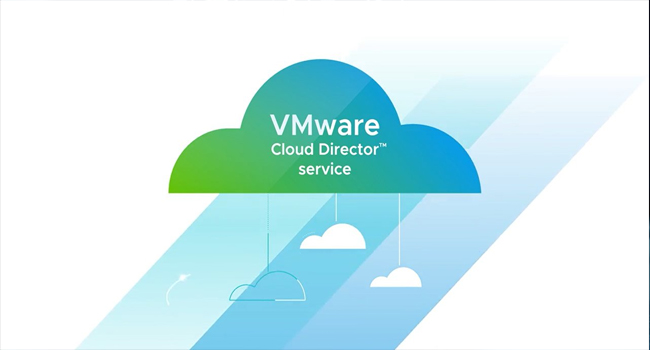VMware Cloud: Transforming Enterprise IT with Hybrid and Multi-Cloud Solutions
VMware Cloud is a comprehensive suite of cloud services that enable organizations to seamlessly run, manage, connect, and protect their applications across various cloud environments. Leveraging VMware’s robust virtualization technology, VMware Cloud offers hybrid and multi-cloud solutions that help businesses modernize their infrastructure, improve agility, and optimize costs. This article provides an in-depth overview of VMware Cloud, its features, benefits, use cases, and key considerations.

Overview of VMware Cloud
VMware Cloud is designed to provide a unified and consistent environment for managing applications across private, public, and hybrid clouds. It integrates VMware’s leading virtualization and cloud management technologies to deliver a platform that supports modern and traditional applications alike.
Key Components of VMware Cloud
- VMware vSphere: The foundational virtualization platform that allows businesses to create and manage virtual machines and compute resources.
- VMware vSAN: Software-defined storage that pools together direct-attached storage devices across a vSphere cluster to create a shared data store.
- VMware NSX: A network virtualization and security platform that delivers network services such as routing, switching, and firewalling through software.
- VMware Cloud Foundation: An integrated software platform that combines vSphere, vSAN, and NSX along with VMware vRealize Suite to deliver enterprise-ready cloud infrastructure.
- VMware vRealize Suite: A cloud management platform that provides comprehensive management of hybrid cloud environments, including automation, operations, and analytics.
- VMware Tanzu: A portfolio of products and services that enable the building, running, and managing of modern applications on Kubernetes.
Benefits of VMware Cloud
- Hybrid and Multi-Cloud Flexibility: VMware Cloud allows businesses to seamlessly extend their on-premises environments to the public cloud, providing flexibility and scalability.
- Consistency and Compatibility: Ensures a consistent infrastructure and operations model across different cloud environments, reducing complexity and operational overhead.
- Cost Optimization: Optimizes resource utilization and reduces costs through efficient workload management and the ability to move workloads to the most cost-effective environment.
- Enhanced Security: Delivers comprehensive security across the entire infrastructure with integrated security features such as micro-segmentation and advanced threat detection.
- Operational Efficiency: Automates routine tasks and streamlines operations, allowing IT teams to focus on strategic initiatives and innovation.
- Support for Modern Applications: Provides a platform for running modern, containerized applications alongside traditional virtual machine-based applications.
Key Use Cases for VMware Cloud
- Data Center Extension: Extend on-premises data centers to the public cloud to accommodate bursts in demand, without the need for additional physical infrastructure.
- Disaster Recovery: Implement cost-effective disaster recovery solutions by leveraging cloud resources for failover and recovery.
- Application Modernization: Modernize existing applications by transitioning to container-based architectures and microservices, supported by VMware Tanzu.
- Dev/Test Environments: Quickly provision and scale development and testing environments in the cloud, reducing time to market for new applications.
- Global Footprint: Deploy applications and services across multiple geographic regions to meet local compliance requirements and improve performance for global users.
Key Considerations for Adopting VMware Cloud
- Cloud Strategy: Define a clear cloud strategy that aligns with business objectives, including goals for hybrid and multi-cloud deployments.
- Cost Management: Understand the cost implications of running workloads in different environments and leverage tools for cost management and optimization.
- Security and Compliance: Ensure that cloud deployments meet security and compliance requirements specific to the industry and region.
- Integration and Interoperability: Evaluate the integration capabilities with existing on-premises infrastructure and other cloud services.
- Skills and Training: Invest in training and development for IT teams to effectively manage and operate VMware Cloud environments.
- Vendor Partnerships: Consider the support and partnerships VMware has with major cloud providers such as AWS, Microsoft Azure, and Google Cloud.
Leading VMware Cloud Providers
VMware has partnered with major cloud providers to deliver VMware Cloud services on their platforms, providing organizations with a range of options for their hybrid and multi-cloud strategies.
VMware Cloud on AWS
- Overview: A jointly engineered service that brings VMware’s enterprise-class SDDC to the AWS cloud, providing seamless integration with AWS services.
- Benefits: Scalability, flexibility, native AWS integration, and support for VMware tools and processes.
- Use Cases: Data center extension, disaster recovery, application migration, and hybrid cloud deployment.
Azure VMware Solution
- Overview: A Microsoft service that runs VMware natively on Azure, enabling organizations to leverage Azure’s global footprint and services.
- Benefits: Seamless integration with Azure services, support for hybrid deployments, and familiar VMware environment.
- Use Cases: Data center migration, disaster recovery, cloud bursting, and application modernization.
Google Cloud VMware Engine
- Overview: A fully managed VMware service on Google Cloud, providing a cloud foundation for VMware workloads with tight integration with Google Cloud services.
- Benefits: High performance, scalability, integration with Google Cloud services, and support for hybrid cloud strategies.
- Use Cases: Data center transformation, hybrid cloud, disaster recovery, and application modernization.
Conclusion
VMware Cloud offers a powerful and flexible platform for businesses looking to leverage hybrid and multi-cloud strategies. By providing a consistent environment across different cloud environments, VMware Cloud enables organizations to optimize their IT operations, enhance security, and accelerate innovation. With partnerships with leading cloud providers like AWS, Microsoft Azure, and Google Cloud, VMware Cloud offers a range of options to meet diverse business needs.
References
- “VMware Cloud Overview”, VMware,
- “VMware Cloud on AWS”, AWS,
- “Azure VMware Solution”, Microsoft Azure,
- “Google Cloud VMware Engine”, Google Cloud,
- “VMware vSphere”, VMware,
- “VMware vSAN”, VMware,
- “VMware NSX”, VMware,
- “VMware Cloud Foundation”, VMware,
This comprehensive guide provides an overview of VMware Cloud, highlighting its benefits, key components, use cases, and leading providers. By leveraging VMware Cloud, organizations can achieve greater agility, cost efficiency, and operational excellence in their cloud journey.